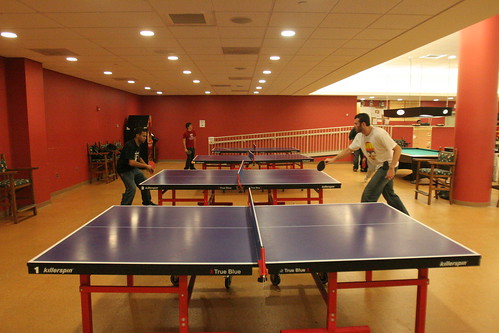It seems Capitol Hill is not the only place fretting about cash.
The Howard Gittis Student Center recently took a $25,000 cut, and departments all around campus are being encouraged to be more fiscally responsible.
With the Commonwealth of Pennsylvania cutting off 4.25 percent of state colleges and universities, a $7.46 million part of Temple is missing. Although a traveling and hiring freeze has been put into effect, the unstable economy puts Temple at risk to lose even more state funding, leaving departments throughout the university searching for ways to make up for the monetary loss.

Less money means more cutbacks, forcing Student Center Director Jason Levy and his staff to hold back on previously planned projects, such as installing plasma screen TVs for student organizations as well as making renovations to the building.
“I set a lot of goals and objectives this year,” Levy said. “But the budget cuts will adversely impact them.”
Levy, though seemingly strained, said he is trying to remain calm and has assured his staff that payroll will not be affected. But for now, a few paint jobs are the least of Levy’s concerns.
“Another $25,000 would be a little more than belt tightening around here,” he said in reference to potential future cuts in state funding.
Considering the university as a whole must keep students’ money in the back of its mind in order to stay afloat, students on campus are worried about an increase in tuition. Though no statements have been made about the subject, an increase in tuition, housing and food would generate more cash for the university to make up for the monetary loss it is currently undergoing.
Students are recommending different ways to conserve money.
Sola Adenugba, a sophomore biology major, said she is always concerned about safety on campus, but she sometimes sees no use for extra security guards around housing and lecture halls.
“No matter what,” Adenugba said, “students find a way to sneak around, and the extra watchdogs are a waste of their time and Temple’s money.”
However, Temple, which employs much of the community, is not looking to necessarily fire anyone, but rather refrain from filling certain positions currently available on campus.
Senior economics major Raheem Onibudo said it makes sense to make do with what the campus already has.
“They’re always trying to upgrade technology when there are more important things to worry about,” Onibudo said. “The TECH Center is always packed anyway, so what’s the point in buying more [computers]?”
Onibudo points out that Temple continues to admit more students, forcing the university to invest in renovations on campus in an attempt to create more space.
Since the buildings were in planning stages years ago, no one could have predicted such an economic collapse, but now, departments look to find other ways to spend less and save more.
“I don’t think we’ve seen the end of the requests,” Levy said.
In an open letter from Anthony Wagner, senior vice president of finance and administration, he wrote that departments have been asked to “think more entrepreneurially” in an attempt to cushion “the possibility for steeper cuts.”
Athletic Director Larry Dougherty has encouraged his staff to “maximize revenue stream potentials,” because unlike other departments on campus, athletics has the ability to generate extra funds through ticket and apparel sales.
Dougherty said the department’s most marketable assets are the athletes themselves. By scouting for talented athletes, Dougherty says the department will “increase any opportunities to maximize potential donors or sponsors.”
As for various schools on campus – like the College of Liberal Arts, School of Communications and Theater and Tyler School of Art – there have been no announcements as to whether or not there will be budget cuts.
Like Capitol Hill, Temple is taking the issue one step at a time, and like the bailout bill, the solution of implementing the hiring and traveling freeze needs time in order to judge its effectiveness on cost-cutting.
Although the university has its own plans for cutting costs, students across the board see the most obvious of changes as the solution. “Look at these buildings they’re making everywhere,” said Steven McMurray, a senior biology major. “To save money, couldn’t we have done one at a time?”
Ashley Nguyen can be reached at ashley.nguyen@temple.edu.



Be the first to comment